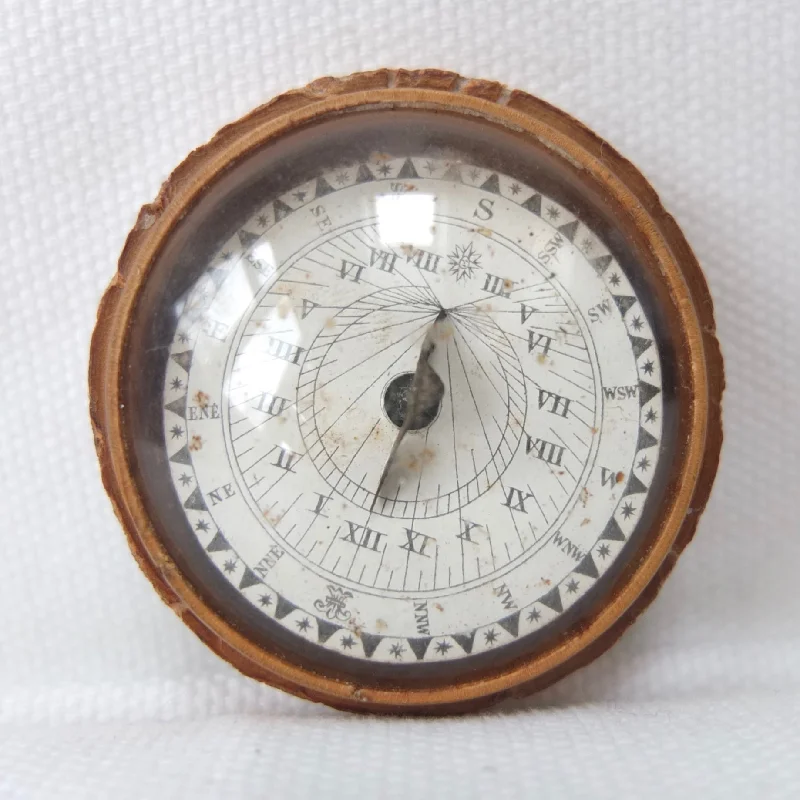A Georgian wooden pocket sundial compass, also known as a 'Pantochronometer' or 'Magnetic Dial', dating from c.1830. The term pantochronometer was apparently coined in the early 19th century by Charles Essex & Co. of Clerkenwell, London. This particular type of floating sundial compass was patented by the London instrument maker Samuel Porter in 1824, who referred to these instruments as 'Magnetic Dials' and labelled them to that effect on the base. This sundial has the remnants of its original paper label on the base. Similar instruments are known to have been made in Europe in the late 18th century. Further details of the history of pocket sundials can be found at the excellent compassmuseum.com website.
This instrument features a beautifully turned wooden case and floating sundial compass card, incorporating a brass gnomon under a domed glass. The compass is in full working order and finds North well.
Condition
In good condition, full working order and finds North well. The wooden case is in good condition, with general signs of age and wear. There is an old crack to the lid, but this is stable and secure, and the lid fits very well. The paper compass card and brass gnomon are in good condition. The tip of the gnomon is slightly bent. The original domed glass is in good condition, with some dust under the glass.
Dimensions: 55mm diameter, 25mm depth

